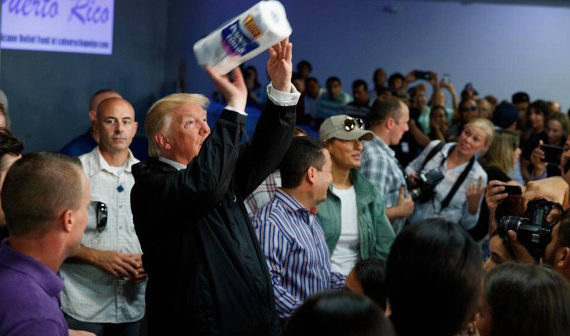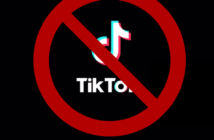Puerto Rico was hit by Hurricanes Irma and Maria in September of last year. However, the effects of the hurricane are still evident due to loss of power and damage to nature and infrastructure, which is still looming over the island. The experience of Puerto Ricans was exacerbated due to the slow arrival of aid, federal aid in particular.
In fact, a bill that the House passed for $36.5 billion, with only $1.27 billion of food assistance for Puerto Rico, was approved more than a month after Hurricane Maria hit, according to the Hill. On the other hand, the Senate approved $15 billion in hurricane relief efforts in the wake of Hurricane Harvey, only a week after the hurricane hit. The $ 36.5 billion bill included funds, which was the second allotment for Texas, Florida, and other southern states that were affected by storms. However, the bill was the first allotment for Puerto Rico, as reported to LA Times.
Alejandro Maldonado, who is a freshman majoring in business management, confirmed that Puerto Rico got aid slower than other states that were affected by the hurricanes, indicating how the territory of Puerto Rico is treated compared to the states of the country.
“I think, in my opinion, help came a little bit slow, comparing to the hurricane Irma from Florida and Texas, Hurricane Harvey,” said Maldonado. “[Help] took time to arrive; and it was weird, comparing to Texas and comparing to Florida. It took a lot of time because the hurricane Harvey and Irma when it happened here in the States, you could already see help on the next two or three days; we were almost five or six days with nobody getting to the island; that affected us.”
The idea that aid was slow also is connected with Trump’s attitude and demeanor upon his arrival on the island after the hurricanes hit.
Trump visited Puerto Rico about a week and a half following Hurricane Maria but only stayed for several hours. Many Puerto Ricans formed a negative opinion of his visit, feeling that his visit was uneventful and considering Trump as disrespectful on his trip to the island.
“So basically, the US government hasn’t done much in my opinion. And I know that I’m not the other Puerto Rican that feels this. He basically went to Puerto Rico two weeks after the hurricanes happened and instead of bringing just like food and giving it to people like an actual leader, he is just throwing paper towels at people, and it’s kind of disrespectful because honestly, paper towels was not an important supply at the moment. There were not water, like fresh water, there was no food,” said Natalia Figueroa, who is a junior majoring in english/professional writing.
Maria Jose Figueroa Miletta, a freshman majoring in business management, described Trump’s actions more in-depth.
“In my opinion, when he came to Puerto Rico after the second week of it, he only went to Puerto Rico for like five hours,” said Miletta. “He went up on the stage, and he started throwing paper towels to us Puerto Ricans, like if we were animals. For me, it was very disrespectful. And also for him, because he is the president of the United States, like either way, we are part of the mainland.”
Miletta thinks that Trump could have done more. She thought FEMA could have done a bit more since they got there later. However, she mentioned that FEMA did help as they provided a lot of food and water; nonetheless, the food that they were given resulted in a lot of issues for the people of Puerto Rico because it was junk food and canned food that have a lot of sodium and sugar, according to PRI.org.
“In the moment, it was perfect because we didn’t have anything else, but later on you can see the consequences of it; a lot of people are now suffering of that.”
Figueroa also mentioned San Juan’s mayor, Carmen Yulín Cruz, and her lack of help in the aftermath of the hurricane.
When she was at Saint Leo during the semester, Figueroa said that from the outside looking in and from social media, Cruz seemed as though she was helping everyone, given that she was asking for federal help and calling out Trump for his actions. However, when Figueroa got to Puerto Rico, she heard from locals that the mayor was not doing such an amazing job as it was depicted on social media. Figueroa then concluded that the mayor abandoned her constituents, rather than getting the necessary aide for them. All of this appeared to have been done to fight Trump in Washington, as opposed to staying closer to the ground. She also mentioned that the mayor wasn’t paying for policemen. In fact, there were reports that policemen were not being paid overtime, so many of the police officers during the Christmas and New Year’s holidays called in sick, which resulted in a deficiency of police patrol on the island.
Another point of contention was the island’s debt, which took the spotlight in the aftermath of the hurricane. The crippling $74 billion debt had appeared to be another major source of the nation’s suffering.
“The few past governors they didn’t know how to manage the money … but I think that this governor right now has done an absolute good job; he has been on top of everything,” said Maldonado.
Francisco Ortiz Fullana, a freshman majoring in business management, also suggested that the previous governors mismanaged the money. He suggested that there could have been an investment in sustainability efforts, such as hydroelectricity or desalination; however, instead, the previous governors diverted most of their money on hotels, as Fullana mentioned.
“Through the years, the governors were horrible with managing the money, trying to make hotels everywhere in San Juan. It’s unnecessary, instead of doing water plants and electricity powered by water or plants to turn salt water to drinking water. Instead of doing that they were just doing hotels, and that’s what really gave us debt,” said Fullana.
Despite past governors’ mismanagement, some of the Puerto Rican students still have high hopes in the current governor, Ricardo Rossello, to perform well, as Maldonado mentioned.
Fullana mentioned that he was unsure of the current governor but has come around to him and believes that he is doing a good job with managing the money.
“He helped us a lot. I was pretty skeptical about our governor, but I mean, he came through,” said Fullana.
Also, Figueroa thinks that the efforts of the governors in the past have not been good, so, she thinks that actions of these governors have led to an accumulation of the debt. She also agrees that the United States can help but it depends on the government in Puerto Rico, and if they aren’t doing anything, the island won’t get out of the debt.
When asked about the debt, Miletta mentioned the issue that Puerto Rico has with dependency and how this political issue transcended into a bigger scale.
“There are a lot of political issues in Puerto Rico because there’s people who want to be a part of the United States to be 51 states,” said Miletta. “As Puerto Rico, we never been alone in that sort of way; we always been part of something. In the first years, we were a part of Spain, and now we are a part of the United States like we never been taught to be alone; and a lot of people are fighting for that also, to be independent. And the debt, I think that it is corruption in some kind of way.”
She thinks that the previous governors have led Puerto Rico to debt. However, she commended the current governor for handling the hurricanes well. In fact, Miletta thinks that the governor did a great job, especially with the state of emergency call before the hurricane to ensure that people in houses that aren’t suitable for hurricanes, like wooden houses, to seek shelter.
Even though there was some trouble with federal assistance in Puerto Rico, there was assistance given to Puerto Rican students on campus. The administration set up tuition assistance, which is essentially an emergency scholarship fund that gives students, whose families were in the path of the storm, a discounted tuition fee in the Spring semester of $8,500, according to Saint Leo University Press Release. Also, professors and success coaches were checking on students to ensure that they were doing well.
“My success coach was always checking up on me through email, seeing how I was doing,” said Fullana. “He one time told me to go to his office in case I was having a breakdown. He was really helpful.”
Figueroa also received help from her professors, who were understanding during the time following the hurricane. They wanted her to get better and was there to offer any help she needed.
“For me, it was mostly my professors. All of them were super understanding. All of them helped, they reached out to me … because it was really a bad semester for me because I had trouble understanding the fact that the Puerto Rico I left in August wasn’t basically the same,” said Figueroa. “My student success coach also helped. I talked to her like the first few weeks after the hurricane. She was very understanding. She helped me like cope with the loss that Hurricane Maria left. And my friends also were very supportive.”
Additionally, Figueroa received hurricane relief assistance, a need-based scholarship offered by the school. She is perpetually thankful to faculty and staff of Saint Leo for all they did during her time of need.
Maldonado’s student success coach was really helpful for him; he mentioned that she was concerned with his wellbeing.
He also applied for tuition assistance last semester, however without the FEMA documentation that was not available at the time, he is uncertain as to whether he would have gotten the assistance.
To read more on these student’s experiences and their families’ in the aftermath of the storm, look on our website for the first part of the article, titled “Puerto Rican Students Managing After Hurricanes.”





